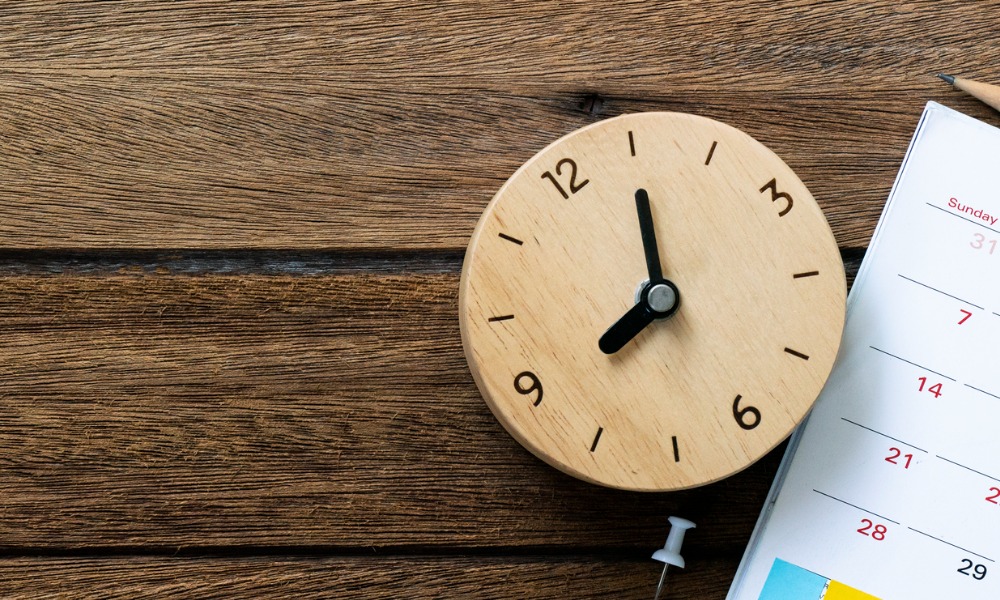
1 in 2 Canadians experience sleep disruption, finds survey, which can impact mental health and productivity

Daylight Saving Time is coming, and many Canadians may have their sleep disrupted once again, based on findings from a recent survey.
Overall, one in two Canadians have experienced disruption to their sleep schedule when the clocks move forward for Daylight Saving Time, causing stress, confusion and silly mistakes, reports Sleep Country Canada.
And over 50% of Canadians needed over a week to cope with the loss of an hour of sleep.
"Studies have shown that poor sleep negatively affects mental health," said Margaret Eaton, national CEO, Canadian Mental Health Association (CMHA). "Restorative sleep helps prevent mental health problems, manage stress and process emotions"
Previously, Marcela Slepica, clinical director at AccessEAP, told HRD that we are in a “dangerous cycle of not getting all of the work done” because we’re sleep-deprived and not sleeping because we’re not getting all of the work done.
In response to the coming DST, Sleep Country, on March 11, will open all retail stores, distribution centres and offices at each of their brands across Canada an hour later than usual.
This will allow employees to reclaim their lost sleep, according to the company.
"This March, we are proud to pioneer the 'Hour Back Pledge' in Canada, underscoring our commitment to advancing sleep health,” said Stewart Schaefer, president and CEO, Sleep Country. “We invite all Canadians to unite and join our nationwide petition to show business leaders that we all deserve quality sleep."
The employer is also donating $100,000 to the CMHA to support mental health initiatives, emphasize the importance of sleep on overall well-being, and advocate for the adoption of healthy sleep habits by all Canadians.
CMHA's national office is also taking the Hour Back Pledge.
“Sleep hygiene” can have positive effects on employees’ performance, according to a previous report.
Nearly two-thirds (64%) of Canadians aged 18-54 sleep for fewer than seven hours a day on average, reports Sleep Country. That falls short of the recommended hours of sleep.
Getting enough sleep is important for productivity at work: 85% of Canadian respondents report increased productivity at work when well-rested, with 90% experiencing improved concentration with consistent, restful sleep.
On March 10th, 2024 at 2 a.m., Canadians will set their clocks forward for daylight saving.
In comparison, it was far easier for Canadians when they set their clocks back an hour to standard time in November 2023 – when DST ended, said Michael Antle, University of Calgary psychology professor, in a CTV News report.
Turning back the clocks means a chance to catch up on some sleep, he said.
“Our bodies naturally want to follow daylight,” Antle said. “It gets to be a problem in Canada, in particular, and in other northern countries, when our days get really short in the winter and when dawn starts getting later and later in the day. Our circadian clock wants to move later and later.”
However, that adjustment can still cause disruptions to the human body and can cause mental health troubles, said Rebecca Robillard, the Canadian Sleep Research Consortium co-chair, in the report.
"In the fall, some of the effects that seem to stand out a bit more are the effects on mental health, so surges in anxiety and depression, substance use as well, especially in males,” she said.
Both experts said the effects of these adjustments can be worse for some, depending on their location.
Previously, a workplace safety expert said companies increasingly see a good night’s sleep as something they can assist with through both scheduling and their benefits plan.